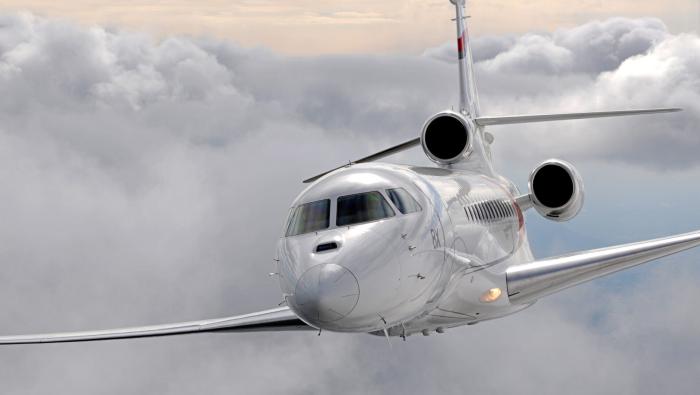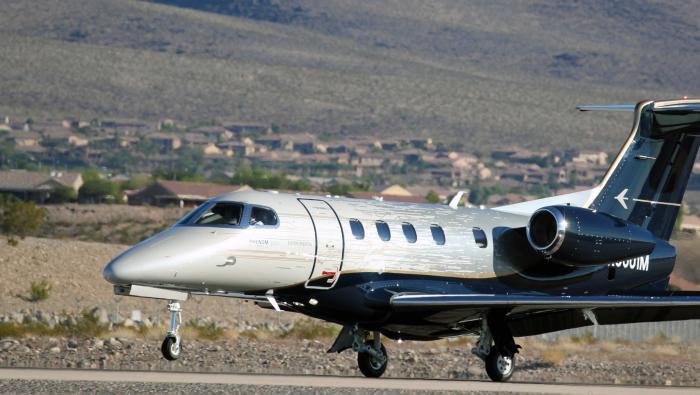Hawker Beechcraft Corp. (HBC) took another step toward emerging from Chapter 11 bankruptcy on Tuesday when it received authorization from the bankruptcy court to sell its remaining inventory of Hawker 4000s. The Wichita, Kansas-based airframer is shutting down its business jet line and intends to sell 20 Hawker 4000s “for the best price possible, on an ‘as-is-where-is’ basis, with no warranty or support commitments,” according to a HBC court filing.
The court’s approval included a number of terms, among them requirements that HBC consult with the ad hoc committee of senior secured lenders and ad hoc committee of senior note-holders, and that all sales and transfers of the Hawker 4000 inventory be free and clear of liens. A large number of Hawker 4000 owners had earlier filed protests with the court, objecting to a sale that might devalue aircraft now in service and to the company’s decision to do so without warranty or support commitments.
Also on Tuesday, Judge Stuart Bernstein issued an order authorizing HBC to enter into the debtor-in-possession (DIP) amendment and approved it “in all respects.” The approval allows HBC to execute and deliver all documents and take any action necessary “to implement, effectuate and fully perform under and in accordance with the motion and this order, including payment of the DIP amendment fees and expenses.”
JPMorgan in its December Aerospace and Defense: Balance of Power suggested, with regard to the HBC restructuring, “the acquisition of the company is still possible.” The financial services giant named Brazil’s Embraer, Cessna and Bell Helicopter parent company Textron and Gulfstream Aerospace parent General Dynamics as companies that might benefit from such a deal.
King Airs Good Choice for Shorter Trips
At the MEBA show, HBC’s plan to emerge from bankruptcy as a manufacturer of turboprop twins was evident on the static park. Three Beechcraft King Airs are on display, representing a core element of the company’s manufacturing plans, which also include continued production of the piston-powered Bonanza single and Baron twin.
More than 200 HBC aircraft are in service in the Middle East and North Africa, 120 of which are King Airs, according to Scott Plumb, vice president, jet sales, Europe, Middle East and Africa. Just 15 percent of those King Airs fill special mission roles, he added. While the commercial market is somewhat flat worldwide, Plumb stated that, “The special mission business is really strong. We have signed two very big deals in the last 30 days in this region.” Because proprietary equipment will be installed on these aircraft, the governments that are buying them don’t want to permit HBC to announce the buyers’ identities, he explained.
Also suitable for Middle East applications are the piston airplanes, primarily for training academies. The Bonanza and Baron include air-conditioning as standard equipment and can operate with no performance degradation at ambient temperatures up to 50 deg C. Although the two airplanes are expensive compared to other training airplanes, he said, the robust construction and reliable operation of the Bonanza and Baron make their lifecycle costs on par with competing training airplanes.
The local opportunity for the company that emerges from bankruptcy–called simply Beechcraft Corp.–will be to develop a larger market for King Airs in the Middle East, Plumb explained. People who fly privately in the region typically want larger, long-range jets. But Plumb believes there are plenty of shorter trips, in the 300- to 600-nm range, which would be far more efficient and less costly in a King Air than a jet. The King Air can also land on much shorter runways and even unimproved airstrips, something a jet can’t do, while the King Air’s amenities and technology are every bit as modern as those found in the latest jets.
Helping potential buyers understand that a King Air can serve their needs will be a big part of Plumb’s job, but he feels strongly that “the King Air family can compete in the jet market. That’s a market space that we have perfected.”







